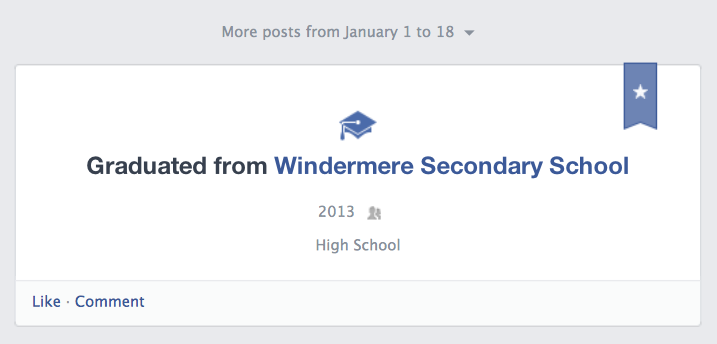Our discussion in ASTU class today got me thinking a lot more about the Internet and how the online platform is practically in a world of its own. It is shaped by the stakeholders that control it (such as Google, Facebook, Firefox, etc.), and it’s users, who are the ones responsible for bringing it to life.
Consumers are prompted (and to some extent, feel obligated) to share a wide range of personal information on the networking sites they are in. For example, take a look at the “Timeline” on Facebook. I think when I first discovered it, I thought of something along the lines of, “wow, this is going to make creeping a whole lot easier.” Now whether we like to admit this or not, the fact is that this is the purpose of social networking sites. They were built with the intention of creating common grounds in the online world for people to connect, and learn more about the people they are connected to. It’s funny, because despite all this, I still find myself wanting to maintain a degree of privacy on Facebook, and I’ve opted to leave a majority of my “about” and “life events” section on my profile relatively blank.
It wasn’t until our discussion in class today, was I reminded of a small, yet profound incident. At the beginning of the year, I noticed something that builds upon Eli Pariser’s Ted talk, Beware online “filter bubbles.” There, he talks about how major stakeholders have an increasing amount of control in personalizing the internet for its users. Have a look:
On the very first day of the new year, Facebook automatically published and highlighted a “life event” on my profile, because apparently, I graduated from high school six months early. I found myself confused by how Facebook could even publish something on my behalf, especially since it wasn’t true. I looked on my friends and classmates’ timelines, and they also had the exact same post as I did. A bit weird, and definitely perplexing, but I forgot about it shortly after.
Similar to how advertisements and search results are filtered based on what a hosting site thinks you want to see, Facebook was posting on my behalf, because they thought that my “graduation” was something that needed to be shared, even if it was incorrect. Not only have I realized that the internet is being filtered and personalized, but I am aware of how social media is pushing its users to share more and more personal information so that we can contribute to our online identities (and as a result have that information sold to third-parties.) Not only do we have to be conscious of the type of information we receive online, but also the information we choose to share. That way, internet users are also able to exert control in the online world that we have become so integrated in.

